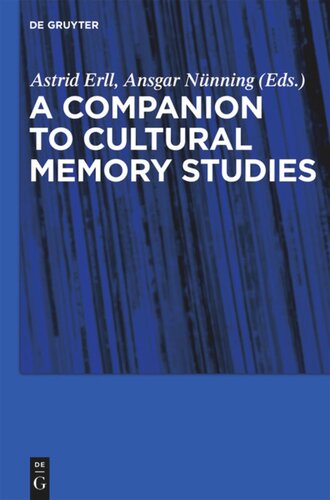

Most ebook files are in PDF format, so you can easily read them using various software such as Foxit Reader or directly on the Google Chrome browser.
Some ebook files are released by publishers in other formats such as .awz, .mobi, .epub, .fb2, etc. You may need to install specific software to read these formats on mobile/PC, such as Calibre.
Please read the tutorial at this link: https://ebookbell.com/faq
We offer FREE conversion to the popular formats you request; however, this may take some time. Therefore, right after payment, please email us, and we will try to provide the service as quickly as possible.
For some exceptional file formats or broken links (if any), please refrain from opening any disputes. Instead, email us first, and we will try to assist within a maximum of 6 hours.
EbookBell Team

5.0
80 reviewsThis handbook represents the interdisciplinary and international field of “cultural memory studies” for the first time in one volume. Articles by renowned international scholars offer readers a unique overview of the key concepts of cultural memory studies. The handbook not only documents current research in an unprecedented way; it also serves as a forum for bringing together approaches from areas as varied as sociology, political sciences, history, theology, literary studies, media studies, philosophy, psychology, and neurosciences.
“Cultural memory studies” – as defined in this handbook – came into being at the beginning of the 20th century, with the works of Maurice Halbwachs on mémoire collective. In the course of the last two decades this area of research has witnessed a veritable boom in various countries and disciplines. As a consequence, the study of the relation of “culture” and “memory” has diversified into a wide range of approaches. This handbook is based on a broad understanding of “cultural memory” as the interplay of present and past in sociocultural contexts. It presents concepts for the study of individual remembering in a social context, group and family memory, national memory, the various media of memory, and finally the host of emerging transnational lieux de mémoire such as 9/11.